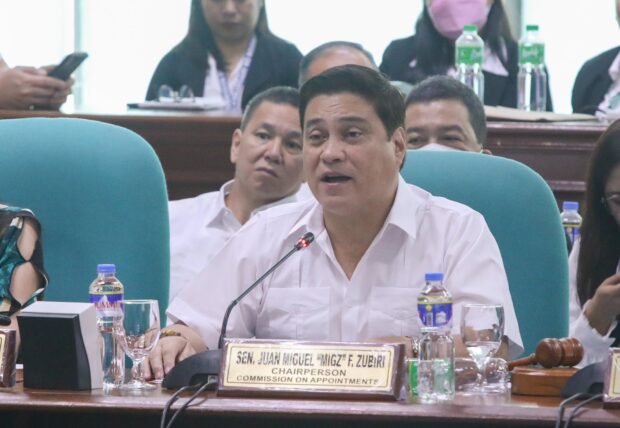
Senate President Juan Miguel “Migz” F. Zubiri — Senate PRIB
The Senate on Wednesday unanimously approved two separate resolutions assailing the stricter travel guidelines that the government’s anti-human trafficking body was set to implement on Sept. 3.
Upon the motion of Senate Minority Leader Aquilino Pimentel III, the chamber passed a still-unnumbered resolution authorizing Senate President Juan Miguel Zubiri to petition the Supreme Court to stop Inter-Agency Council Against Trafficking (IACAT) from enforcing the policy that the senators believed violates the Filipinos’ right to travel.
During their regular plenary session, the senators also adopted another resolution urging IACAT, a multi-agency council headed by the Department of Justice, to heed the calls of various sectors to temporarily set aside the new travel rules.
‘Unconstitutional’
“I truly feel, [although] I’m not a lawyer, that this is unconstitutional… The right [to travel] is in the Constitution,” Zubiri said.
Pimentel, a bar topnotcher, agreed with the Senate president, saying that the guidelines would only unnecessarily burden the traveling public. “We can help come up with ideas [on] how to combat human trafficking, but not to the extent that it violates the Constitution,” the opposition senator said.
In a separate privilege speech, Zubiri said the government’s efforts to stem human trafficking and arrest illegal recruiters preying on overseas Filipino workers should be consistent with existing laws.
“Let us not victimize Filipino travelers with inefficiency,” he said.
Sen. Grace Poe, the chair of the Senate public services committee, also added her voice in urging IACAT to suspend the enforcement of the stricter outbound travel policy.
Said Poe: “We welcome the move to address delays and inefficiencies at our airports and curb the scourge of human trafficking. But doing so should not be at the expense of legitimate Filipino travelers.”